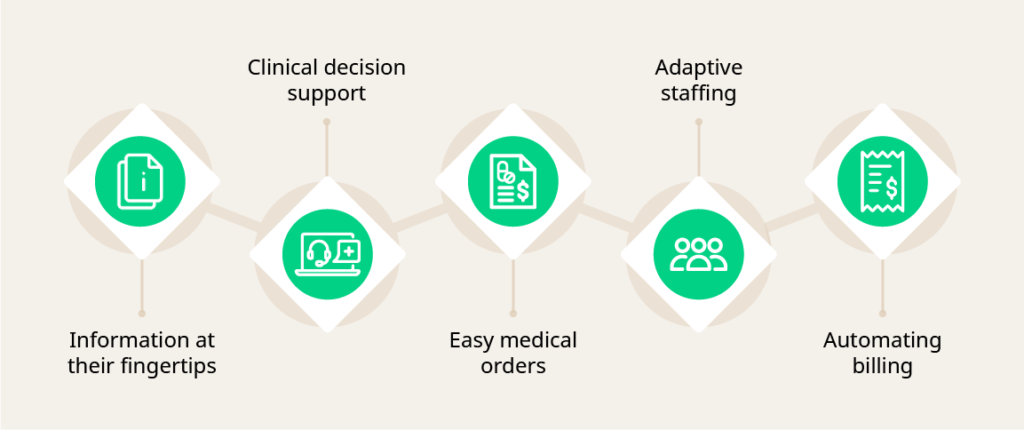The healthcare industry has always been shaped by technology. Yet while subject to many of the same QA testing challenges that our clients in every other industry struggle with, the industry has unique needs that further compound its technological challenges.
AI automation and app-based healthcare services can upgrade clinical precision, improve patient satisfaction, diminish human errors, and increase productivity. Such services also present a need for perfect QA testing with arguably higher stakes than any other industry. However, the healthcare industry must also respond to a variety of unique challenges related to factors like intense regulatory scrutiny, patient privacy concerns, bureaucratic inefficiency, and some reluctance to adopt new technology from within the industry.
By introducing high-quality automated QA Testing, developers in the healthcare technology field stand to improve their offerings, limit pushback from within the medical profession, and, hopefully, work towards a world of better, more accessible healthcare for us all.
Let’s review some of the more fascinating use cases that we at Sofy have seen at the forefront of the healthcare technology industry.
How Automation in Healthcare Helps Patients
Let’s start with how automation in healthcare helps patience. Consider the following three use cases:
-
Early disease detection
By utilizing AI algorithms that compare a patient’s stats to a similar cohort of patients, healthcare developers can anticipate impending health risks and distinguish the best interventions before a patient’s condition begins to deteriorate.
-
Better engagement and more consistent care
The quality and consistency of engagement between patients and healthcare providers increase with the adaption of mobile apps. Well-designed mobile apps can make it simple to book appointments, fill out medical forms, and pay bills. Clinicians and staff can access patients more easily when needed, and automated reminders can ensure that patients arrive at appointments on time and prepared.
-
Remote patient monitoring
Using automated clinical devices and healthcare apps, patients can see doctors, allow medical personnel to monitor their vitals, and even experience certain diagnostic tests from their homes.
How Automation in Healthcare Helps Clinicians

Now let’s consider a few points where automation in healthcare helps clinicians:
-
Information at their fingertips
It can be very tedious and time-consuming for a doctor to comb through a patient’s records and review a patient’s complete history before each appointment with a patient. Digital charts can collate all relevant patient information and allow doctors to take clear patient notes for future visits.
-
Clinical decision support
If a doctor needs a second opinion, she can easily consult a database of what actions other doctors in her organization have taken, or easily forward the patient’s full history, tests, and scans to a co-worker with the right expertise.
-
Easy medical orders
One of the most tedious processes for doctors is requesting and ordering within the Electronic Health Record System. While in the past a doctor could scribble a request onto a prescription pad, early HER systems required many clicks and screens to place an order. Recently, innovation and AI are driving change to increase efficiencies.
-
Adaptive staffing
Healthcare systems are beginning to utilize AI to adjust their staffing. This helps to scale emergency division staffing with seasonal and real-time patterns, ideally resulting in lower wait times in healthcare.
-
Automating billing
Recording and billing medical procedures is traditionally time-consuming and expensive, requiring the work of a full-time specialist. These processes can be automated using AI, making coding considerably more productive and consistent, and ultimately yielding increased income for medical clinics and associated personnel, such as doctors.
Sofy for Healthcare
Like anyone involved in high-stakes and constantly evolving mission-critical work, healthcare developers certainly benefit from robust daily testing. Challenges they face include a broad user base that may not be technologically savvy and may be using older devices, pushback and hesitancy to adapt from clinicians and patients, budget constraints (especially in public health), and complexities associated with regulation. If this sounds like your organization (whether you are in healthcare or not), you can benefit from the low-cost, timesaving, flexible QA testing that Sofy offers. Sofy can help with all these challenges and more.
Sofy offers remote access to dozens of real devices for broad testing. This ensures a consistent product experience across users. Our fully automated, no-code platform saves you time and money, and provides you with the flexibility to test and perform constant product validation. In addition, our UX/UI validation features can help you ensure that user experience is up to the standards of your organization, and any regulatory bodies you are subject to.
When it comes to reluctance to adopt new technology from clinicians and patients, no tip or trick will encourage them to use a product that doesn’t consistently make their day easier. The best way to promote mass adaption is to release a flawless product from the first day and to continue improving without errors with each successive release.
And the best way to release a flawless app is to test regularly with the power of Sofy.










